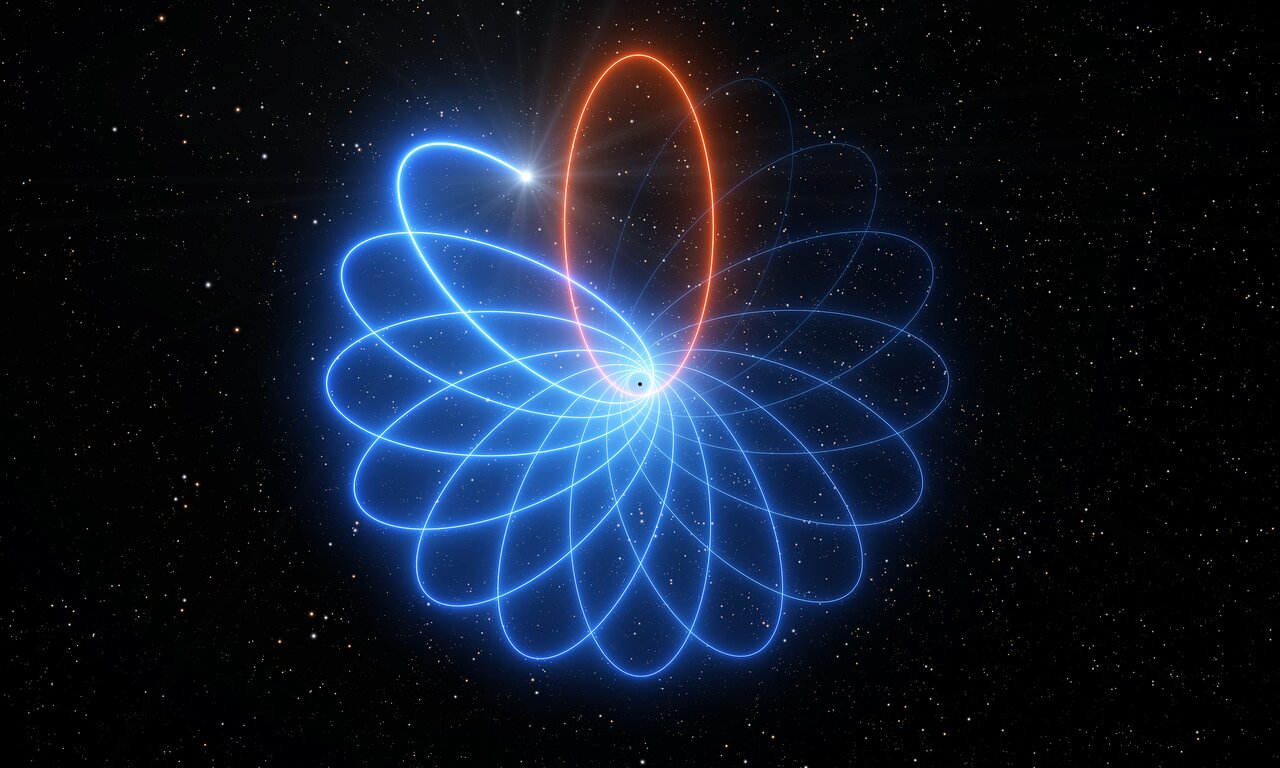ESO: Telescope Sees Star Dance Around Black Hole
Posted: Thu Apr 16, 2020 4:18 pm
ESO Telescope Sees Star Dance Around Black Hole
ESO Science Release | VLT | 2020 Apr 16
Star Dancing Around Supermassive Black Hole Confirms Einstein
Max Planck Institute for Extraterrestrial Physics (MPE) | 2020 Apr 16
Detection of the Schwarzschild precession in the orbit of the star S2
near the Galactic centre massive black hole ~ GRAVITY Collaboration: R. Abuter (et al)
ESO Science Release | VLT | 2020 Apr 16
Observations made with ESO’s Very Large Telescope (VLT) have revealed for the first time that a star orbiting the supermassive black hole at the centre of the Milky Way moves just as predicted by Einstein’s general theory of relativity. Its orbit is shaped like a rosette and not like an ellipse as predicted by Newton's theory of gravity. This long-sought-after result was made possible by increasingly precise measurements over nearly 30 years, which have enabled scientists to unlock the mysteries of the behemoth lurking at the heart of our galaxy.
“Einstein’s General Relativity predicts that bound orbits of one object around another are not closed, as in Newtonian Gravity, but precess forwards in the plane of motion. This famous effect — first seen in the orbit of the planet Mercury around the Sun — was the first evidence in favour of General Relativity. One hundred years later we have now detected the same effect in the motion of a star orbiting the compact radio source Sagittarius A* at the centre of the Milky Way. This observational breakthrough strengthens the evidence that Sagittarius A* must be a supermassive black hole of 4 million times the mass of the Sun,” says Reinhard Genzel, Director at the Max Planck Institute for Extraterrestrial Physics (MPE) in Garching, Germany and the architect of the 30-year-long programme that led to this result. ...
Star Dancing Around Supermassive Black Hole Confirms Einstein
Max Planck Institute for Extraterrestrial Physics (MPE) | 2020 Apr 16
Detection of the Schwarzschild precession in the orbit of the star S2
near the Galactic centre massive black hole ~ GRAVITY Collaboration: R. Abuter (et al)
- Astronomy & Astrophysics 636:L5 (Apr 2020) DOI: 10.1051/0004-6361/202037813
- arXiv.org > astro-ph > arXiv:2004.07187 > 15 Apr 2020
